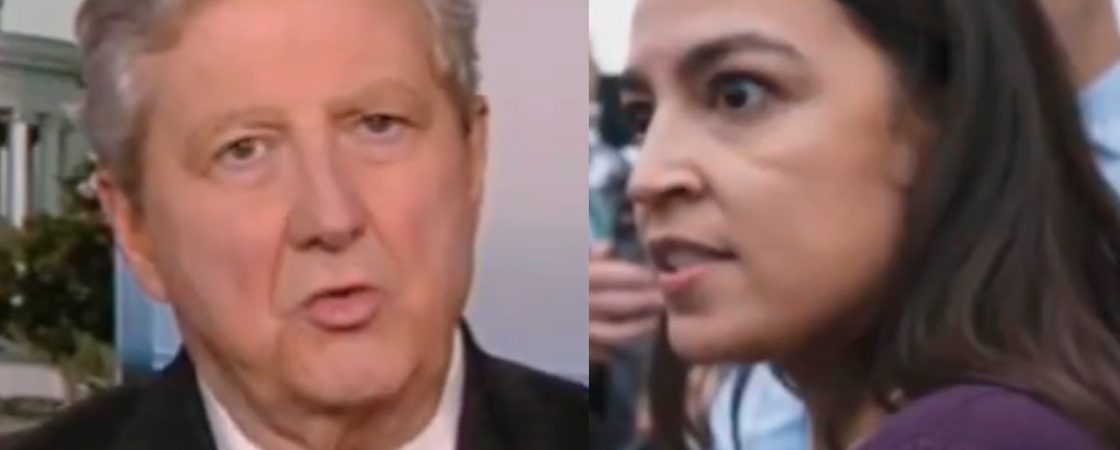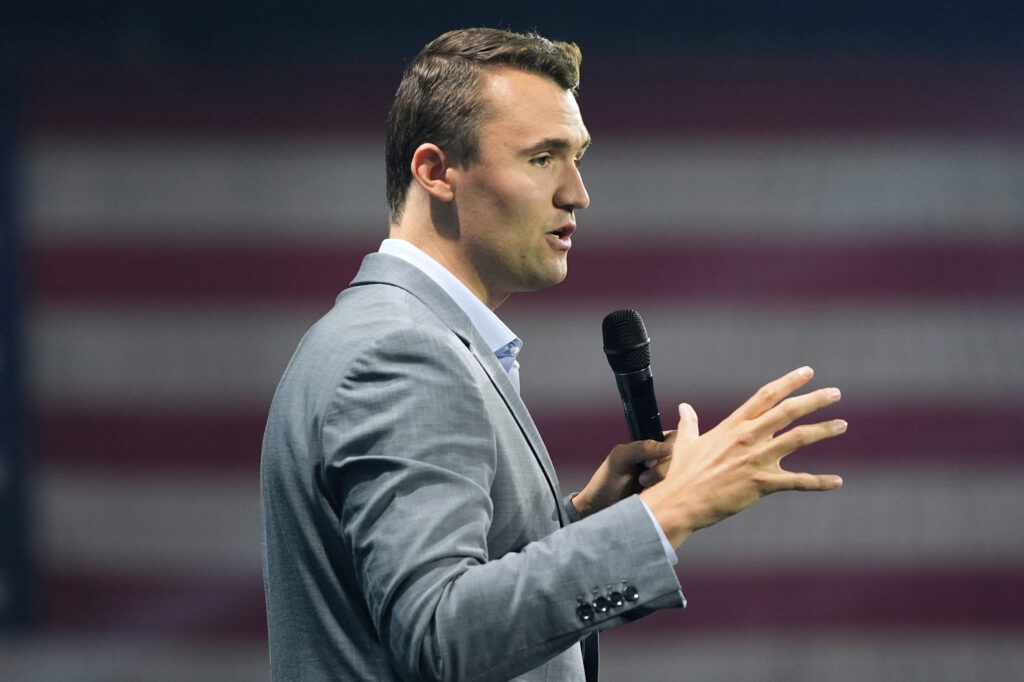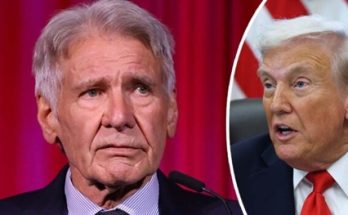“Wait — did she really just say that?”
The question rippled through the marble hallways of the Capitol like a spark in dry grass.
It began, as most modern political firestorms do, with a post. Just 37 words typed on a glowing phone screen, sent from the verified account of Representative Naomi Reyes, one of the most outspoken progressive voices in Washington. Her message targeted
Senator Jack Callahan, a conservative lawmaker known for his biting wit and relentless questioning during hearings.
“Men like Jack Callahan are dangerous. They twist words, weaponize truth, and silence progress. Someone needs to silence
them for once.”
Within minutes, her post had 80,000 retweets.
Within an hour, it was on every news site.
And before dawn, it had sparked something far bigger than either of them could have imagined.
The Thread That Started the Fire
At first, no one expected the post to matter. Political jabs were nothing new, and Naomi Reyes had made a career out of being provocative. But this time, her words hit differently.
The word “silence” carried weight — especially in a week when Congress was already debating a bill on media freedom and political speech.
Senator Jack Callahan saw the post early the next morning. His aides urged him to ignore it. “Let it fade,” they said. “Don’t give her the attention.” But Callahan wasn’t built that way.
He printed the post on paper — all of them, actually. Every tweet, every reply, every quote she’d made about “ending hate speech” and “regulating dangerous voices.” He carried them like evidence.
That night, he called for a public hearing on the state of free expression in America. And he requested — quite specifically — that Representative Naomi Reyes be present.
The media went wild.
The Hearing
On a cold Tuesday morning, the chamber was packed. Cameras lined the back wall. Commentators whispered predictions. And somewhere, deep in the crowd, aides from both parties adjusted microphones and exchanged uneasy glances.
Naomi walked in wearing a crisp white blazer, chin high, confidence radiating. She believed she could control the narrative — that she’d be the one asking the questions, not answering them.
But when Senator Callahan began speaking, everything changed.
“Representative Reyes,” he said, holding up a stack of printed pages, “you’ve accused this institution of silencing voices. Yet here you are, calling for others to be silenced. Which is it?”
A murmur moved through the room. Naomi adjusted her mic. “Senator,” she replied calmly, “context matters. My post was about accountability. We cannot allow hate to disguise itself as free speech.”
“Ah,” Callahan said with a half-smile. “So you get to decide what’s hate, and who gets to speak?”
Naomi leaned forward. “When someone spreads misinformation that harms real people, yes. There should be consequences.”
He nodded slowly, then held up one of her printed posts. “You mean like this?”
“We must stop these voices — permanently — before they destroy democracy.”
The room went still.
Naomi tried to clarify, but Callahan didn’t stop. He read each of her tweets out loud — every word she’d posted over the past year about censorship, power, and who deserves a platform.
One by one, her statements filled the air — not as digital fragments, but as spoken truths echoing in a chamber where every syllable carried weight.
The Turning Point
At first, Naomi pushed back. She accused him of cherry-picking. She said he was twisting her intent. But as Callahan continued, it became clear that this wasn’t just about tweets — it was about
trust.
He reached for another sheet. “Do you remember this one?” he asked.
“If you disagree with equality, you don’t deserve a microphone.”
Naomi hesitated. “Yes,” she said quietly.
“Who decides who ‘deserves’ a microphone?” he pressed.
Her silence said more than any answer.
The crowd felt the shift — subtle, but undeniable. What began as a political debate was becoming something deeper: a mirror held up to both sides, reflecting the uneasy truth about modern America’s relationship with speech.
Callahan didn’t shout. He didn’t insult. He simply read. And with every word, the moral ground Naomi thought she stood on began to crumble.

The Moment That Changed Everything
Halfway through the hearing, a reporter’s phone buzzed. Then another. A leaked video had surfaced — Naomi at a private fundraiser two months earlier, laughing about “controlling the narrative” online.
“Sometimes,” she’d said on tape, “you have to drown the noise before it drowns you.”
The clip played across every live feed within minutes. The hearing room, still mid-session, became the epicenter of a national moment.
Callahan looked down at his papers, then back at Naomi. “I don’t need to read the rest,” he said softly. “The country just did.”
Naomi’s face flushed. She tried to speak — but her mic cut out. Technical glitch or poetic timing, no one knew. The room filled with whispers.
“Can she respond?” someone shouted.
Callahan shook his head. “I think she already has.”
The audience — journalists, aides, staffers — sat frozen. Outside, social media exploded. The hashtags were instant:
#ReadOutLoud
#SilenceVsTruth
#ReyesVsCallahan
Within hours, it was the top story in the nation.
The Aftermath
That night, Naomi’s team released a statement. It was polished, strategic, full of deflection: “My comments were taken out of context. I stand by the fight for responsible speech.”
But the damage was done.
Clips of Callahan reading her tweets — calm, deliberate, devastating — aired on every network. Analysts debated who was right, who was wrong, but one fact was undeniable: the hearing had changed something fundamental in the national conversation.
Late-night hosts joked about it. Columnists called it “the moment the internet met accountability.” And even those who disliked Callahan admitted — he hadn’t shouted. He hadn’t attacked. He’d simply held up a mirror.
Meanwhile, inside a quiet office on Capitol Hill, Callahan’s staff found him alone, staring out at the city lights.
“She’ll recover,” one aide said.
“Maybe,” he replied. “But the question isn’t whether she recovers — it’s whether we do.”

The Nation Reacts
The story took on a life of its own.
For some, Naomi was a cautionary tale — proof that no one, no matter how powerful, could control the narrative forever. For others, she was a victim of an older, louder establishment that refused to adapt to modern truth.
Talk shows argued over what “free speech” really meant. College debates erupted nationwide. Professors assigned the transcript of the hearing in ethics classes. The phrase “read out loud” became shorthand for radical transparency — for confronting the gap between what we say online and what we mean.
Even Naomi’s closest allies were divided. Some urged her to apologize. Others told her to double down. She chose neither. She disappeared.
For nearly three months, she made no public statements. No interviews. No appearances.
Until one night in New York, when she walked onto a televised town hall unannounced — and asked for a microphone.
The Return
The crowd gasped.
The moderator stumbled over his words.
But Naomi stood tall.
“I said once that dangerous voices need to be silenced,” she began. “I was wrong.”
You could hear the shock ripple through the audience.
“I thought power meant control,” she continued. “But I learned that control isn’t power — it’s fear. And fear makes us small.”
Her words, for the first time, weren’t defensive. They were human. Raw. She admitted to losing herself in politics, to forgetting that even opponents are people.
Some applauded. Others rolled their eyes. But the internet — always hungry for authenticity — began to shift again. A clip of her apology went viral.
#ReyesReturns trended within hours.
In Washington, Callahan watched the broadcast silently.
When reporters asked if he accepted her apology, he smiled faintly and said, “I didn’t ask for one. I just wanted her to speak.”

The Real Reckoning
Months later, the two met again — this time off-camera, in a private committee meeting. No microphones. No press. Just two public servants facing the quiet aftermath of their own choices.
“I never meant it to go that far,” Naomi said softly.
“I know,” Jack replied. “But sometimes the truth doesn’t ask permission.”
They spoke for nearly an hour about reform, accountability, and what they’d both learned from the chaos. No agreements were signed. No alliances formed. But something changed — a recognition that democracy isn’t built on silence or shouting, but on the space between the two.
The Sound of a Word
Weeks later, an aide cleaning the hearing room found a single page left behind — one of the printed tweets Callahan had read. In the corner, someone had written two words in pen:
“Never again.”
The aide never figured out who wrote it — Callahan or Reyes. But in the end, it didn’t matter.
What mattered was what the country took from that moment — a reminder that speech, once spoken, can’t be erased. And that sometimes, the loudest truth isn’t the one shouted through a microphone…
but the one read calmly, word for word, in front of the world.







